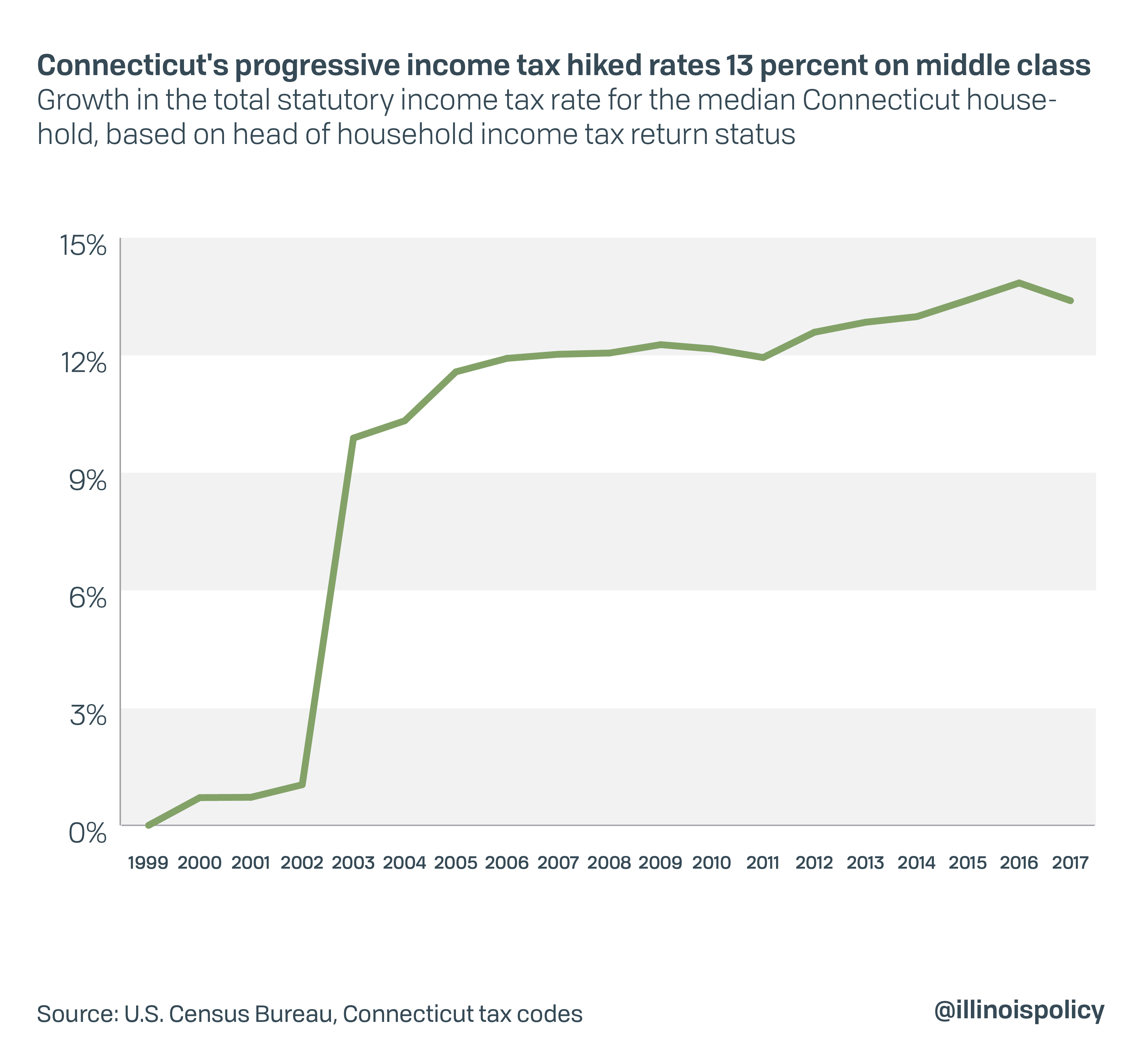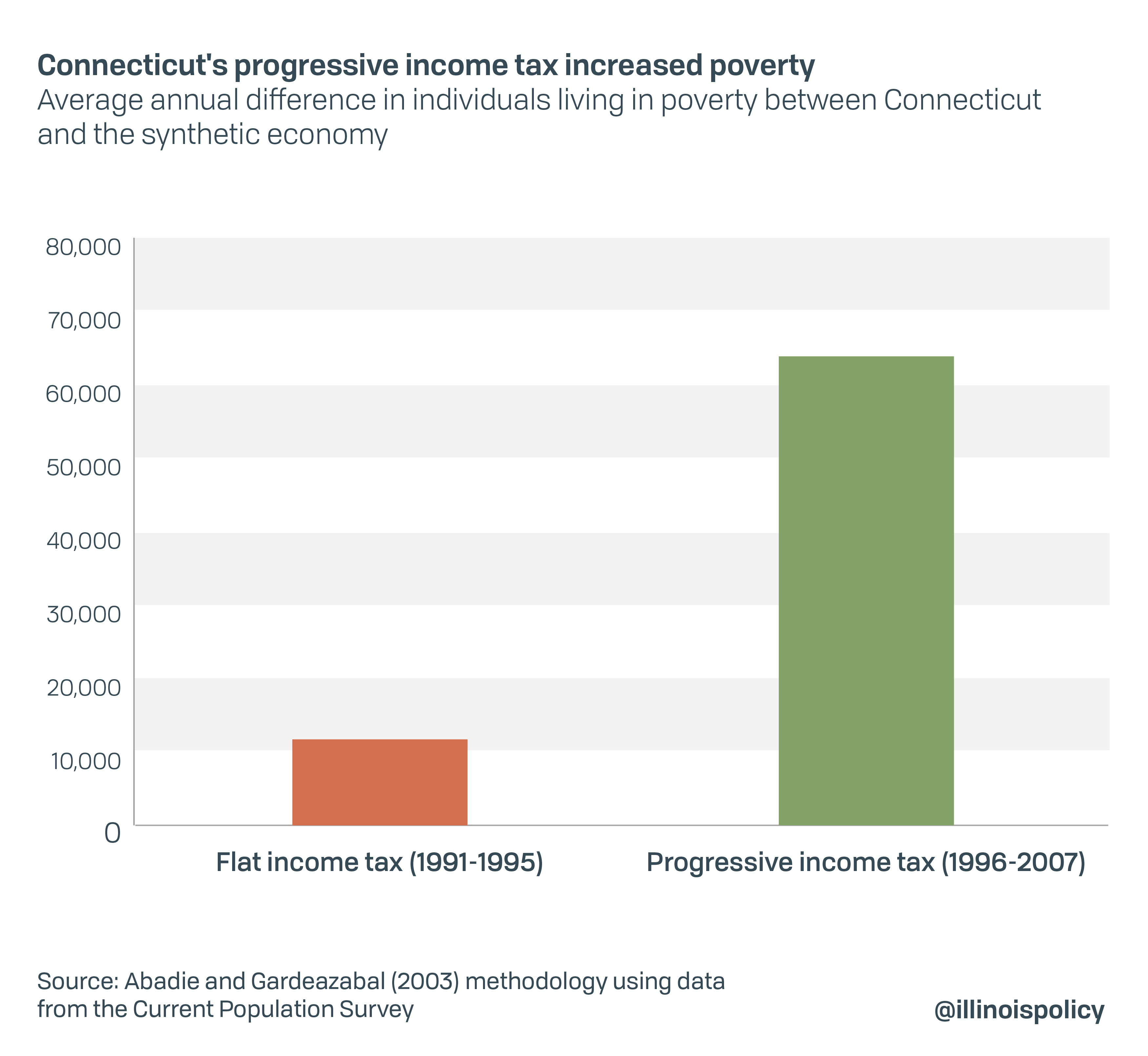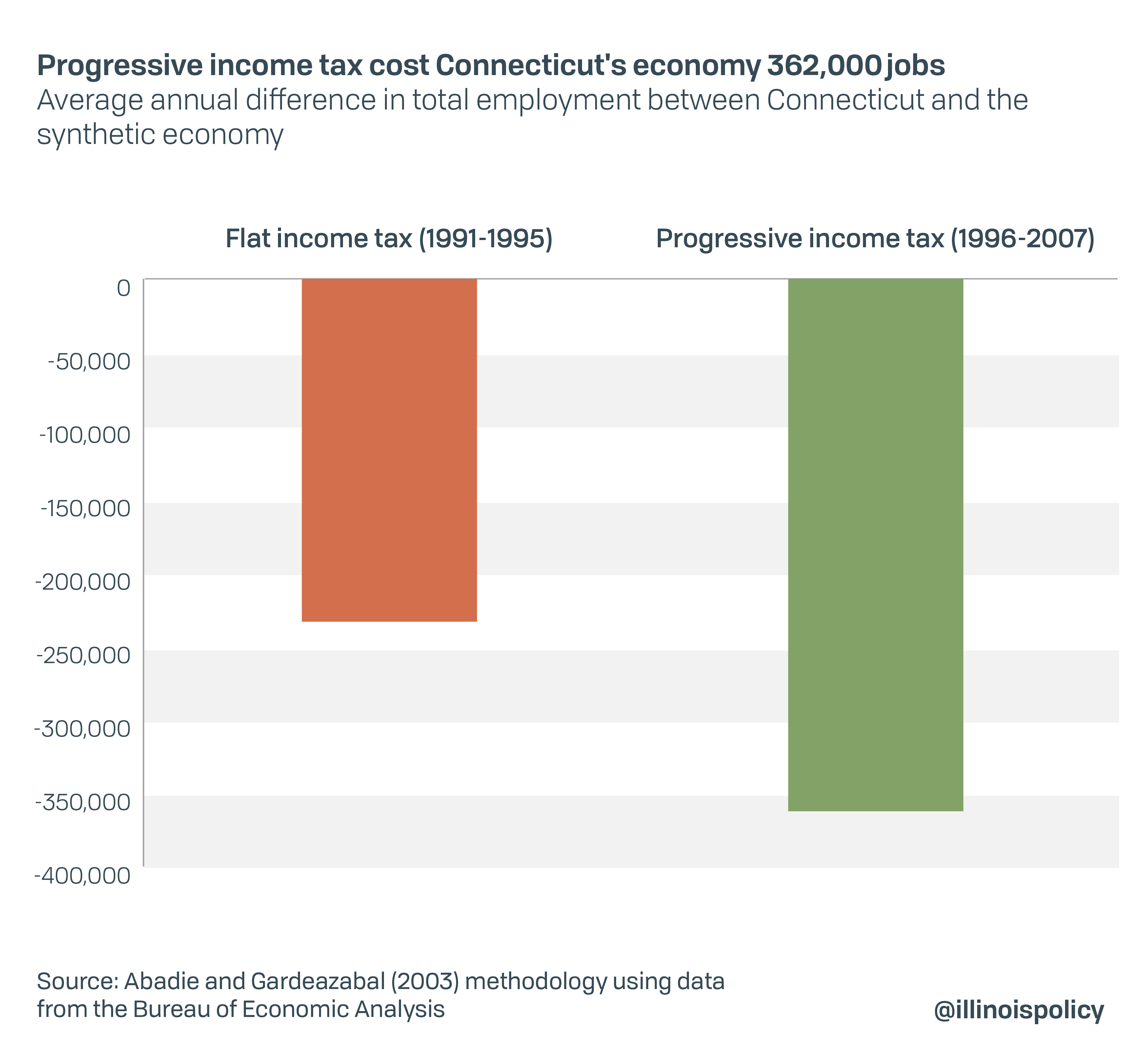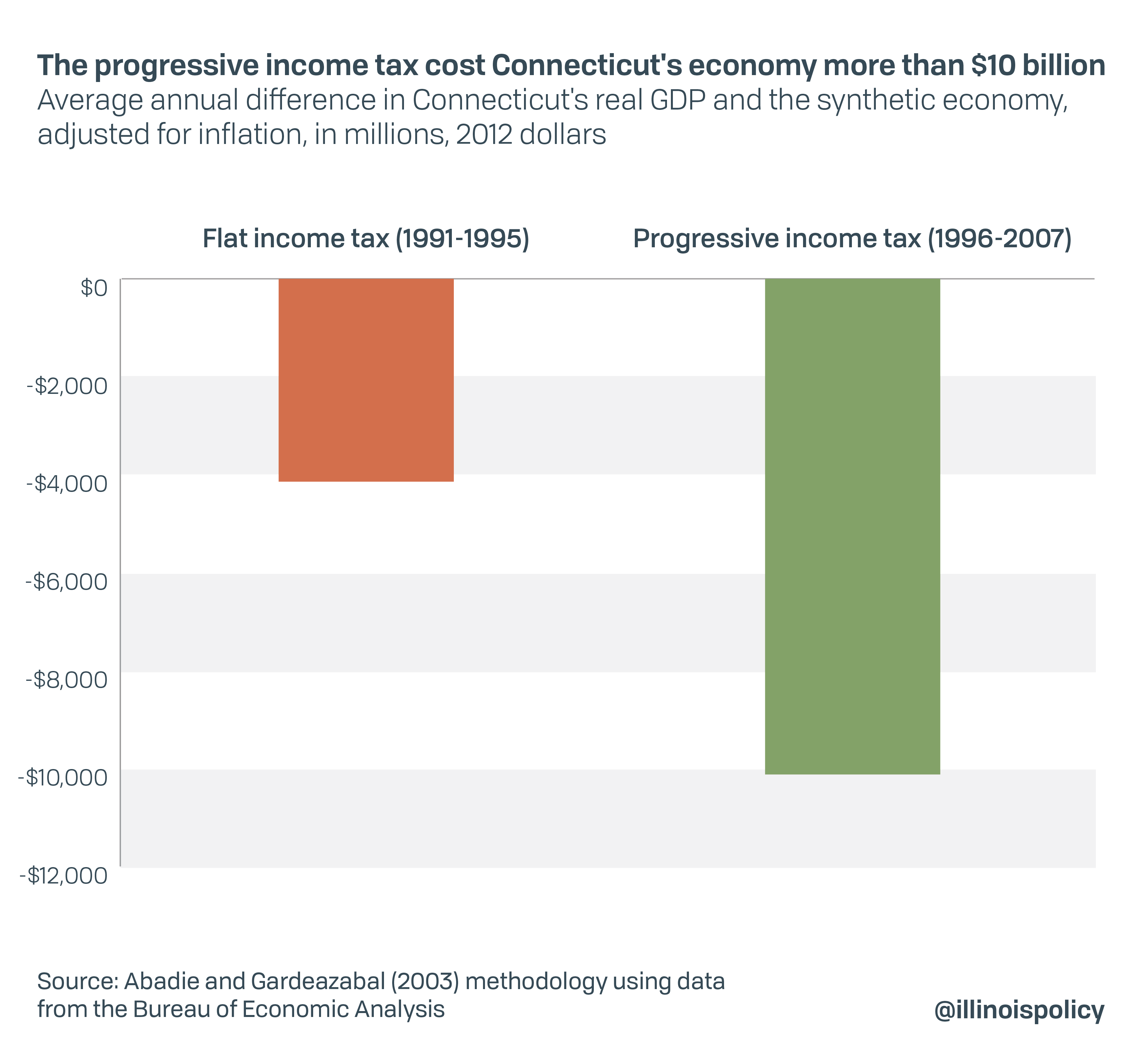4 lessons Illinois should learn from Connecticut’s ‘fair tax’ failure
Only one state has switched its income tax structure from flat to progressive in the past 30 years. Its disastrous results may explain why.
On March 7, Illinois Gov. J.B. Pritzker’s office released an income tax plan that proposes changing the state’s flat income tax system to graduated, or “progressive,” rates. But the only state in 30 years to make that switch shows why Illinois should stick with a flat income tax.
Connecticut is the only state to enact a progressive income tax system during a time that two states scrapped their progressive taxes. Connecticut leaders argued that putting a heavier burden on “the rich” would lower taxes on the middle class, jog the economy and reduce poverty. Those are Pritzker’s arguments today.
What were the results? Middle-class tax hikes, jobs loss and more poverty.
A new Illinois Policy Institute analysis of Connecticut’s progressive tax experience indicates the system worsened the very problems Pritzker is arguing the tax will solve in Illinois. Far from a magic pill, a progressive tax system would progressively worsen the state’s fiscal health. Here are four lessons Illinois lawmakers should take from Connecticut’s progressive tax failure:
1) Middle class income tax rates spiked by 13 percent
As with Pritzker’s progressive tax pitch, the promise of a middle-class tax cut was a key selling point for advocates in Connecticut. But since the state adopted its progressive system in 1996, typical Connecticut households have seen their income and property taxes spike.

Since 1999, income tax rates on the median Connecticut household have risen by more than 13 percent. And while Pritzker argues a “fair tax” system would temper Illinoisans’ sky-high property tax burden, that wasn’t true in Connecticut. Residents’ property tax bills climbed by more than 35 percent.
Connecticut’s poor fiscal health mirrors Illinois’. The progressive tax has failed to fix it, with Connecticut running budget deficits for 12 of the past 15 years. Despite persistent tax hikes, Connecticut holds more debt per capita than almost any other state.
2) Poverty soared under the progressive tax
Progressive tax proponents champion the measure as a tool to elevate vulnerable residents and produce more equitable economic outcomes. In Connecticut, outcomes were very different than intentions.
Connecticut is a historically wealthy state, but more residents fell below the poverty line after it adopted the progressive tax. At the same time, poverty rates were falling nationwide.

From 1980 to 1991, before Connected enacted its progressive tax, the state’s poverty rate was just 5.5 percent. That rate jumped to 8.1 percent during the decade following the progressive income tax. In other words, 12,000 more Connecticut residents dropped below the poverty line when the state imposed a flat tax in 1991 and then 64,000 more fell into poverty after the progressive tax began in 1996.
3) Connecticut shed 362,000 jobs
Why did more Connecticut residents fall into poverty under a progressive income tax system? Fewer jobs is one answer.
Connecticut residents paid no income tax until 1991, when the state first adopted a flat tax model. The state’s workforce took a hit immediately, shedding 233,000 jobs. That number swelled to 362,000 in the years after 1996, when the state changed its income tax system from flat to progressive.

What’s worse, high-paying jobs were the biggest loss after the state’s progressive tax switch. Those are jobs that allow lower-income residents to climb the socio-economic ladder. With these opportunities either destroyed or never created following the progressive tax, the state’s most vulnerable were less upwardly mobile.
4) Connecticut’s economy lost more than $10 billion
Job opportunities thin when investment declines. And Connecticut’s experiment with its income tax system ultimately cost the state $10 billion in investment.

Connecticut’s economy took an immediate hit after introducing its flat income tax in 1991, initially shedding more than $4 billion. Switching to a progressive system 1996 made matters much worse, costing the state an additional $6 billion.
While Pritzker has exalted the progressive tax as a way to revive Illinois’ slouching economy, Connecticut’s experience is a warning: Our state’s finances could slump even more.